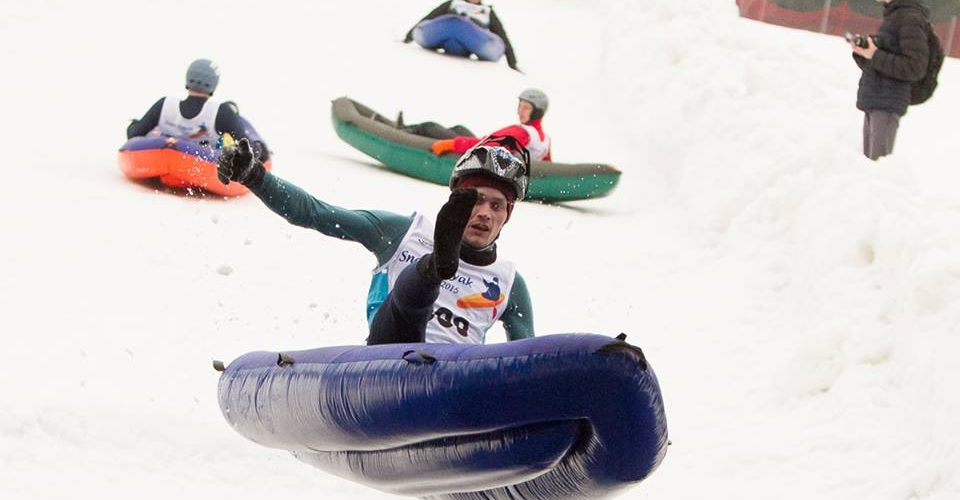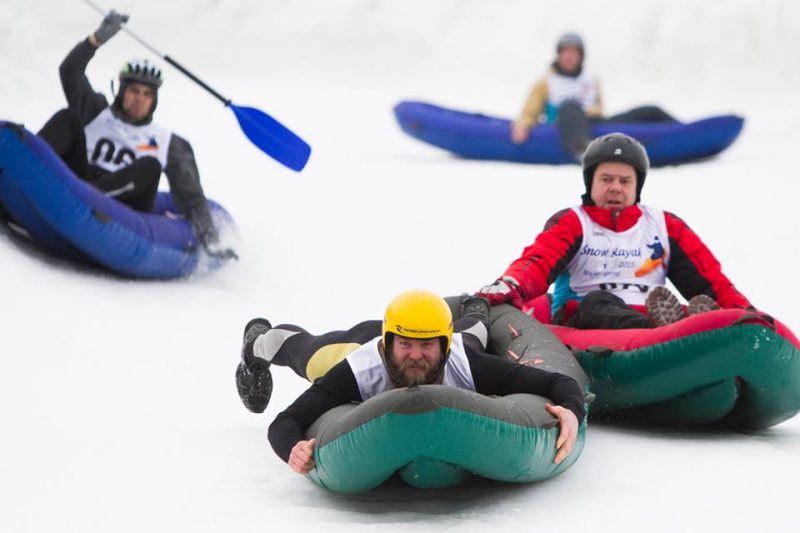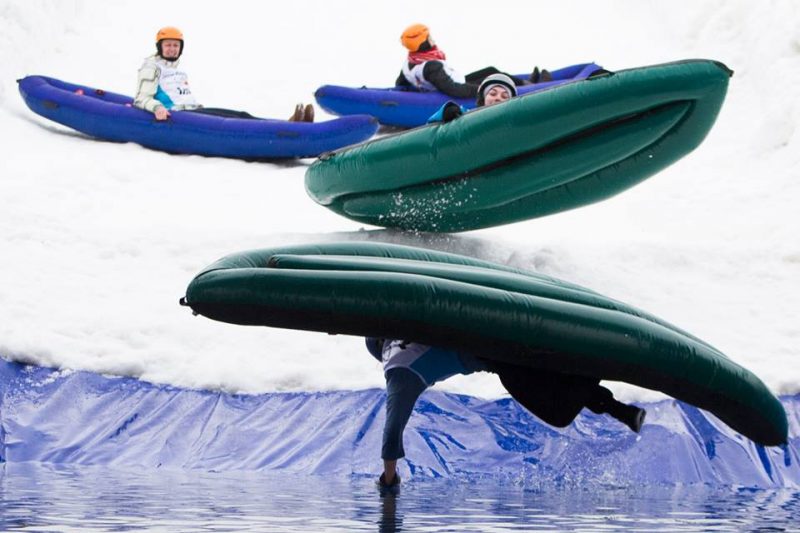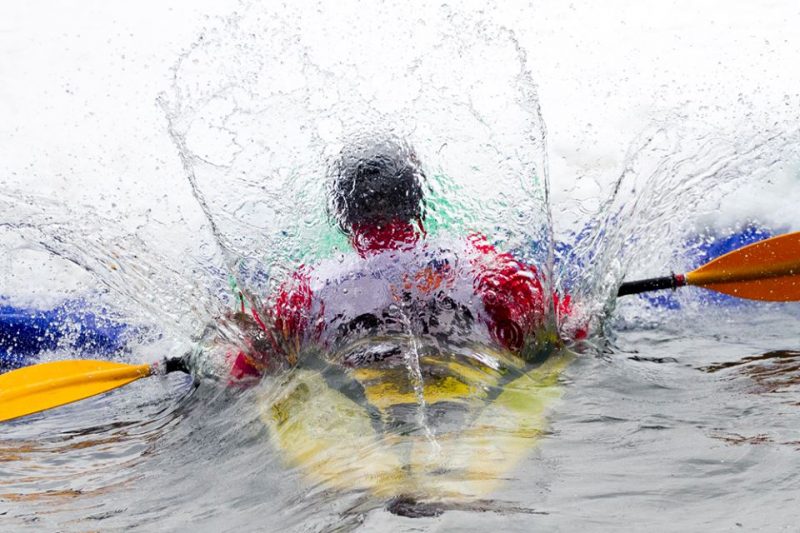The sport of snow kayaking, essentially racing down a snow slope in a kayak, has an illustrious history. Believed to have been invented by whitewater kayakers in the Alps as a winter alternative when the rivers were frozen under snow, the first recorded official race was held in the Austrian resort of Lienz. The first Snow Kayaking World Championships were held in the same resort five years later and Austrian kayaker Peter Draxl became the first world champion in snow kayaking.
Over the past decade however snow kayaking competitions have often been staged on indoor snow, with World championships previous held at Snowworld Landgraaf in the Netherlands and most recently at the Snow Arena in Druskininkai, Lithuania up in the Baltic region.
The Snow Arena is unique among the world’s 70 or so indoor snow centres in that as well as having one of the largest indoor snow slopes, in winter it is possible to continue on the slope outdoors.
This year’s Snow Kayak race on February 3rd, 2019, will therefore take place on a dedicated 640 metre (2100 ft) long slalom track, prepared just for this competition, and ending with a finish in an ice-water pool – the more usual location for a kayak.
The competition is part of as multi-winter-sport festival which has become the biggest winter sport events in the Baltic states. Known as the LTeam Olympic winter festival it attracts huge crowds of exotic sports lovers who are keen to both watch and take part in unusual winter sport activities, including both novice amateurs and top level professionals.
Besides the snow kayaking event there are downhill skiing and snowboard slalom competitions as well as family hockey and international Bavarian curling contests.
One popular event is a multi-sport challenge involving mountain biking, running, orienteering, as well as the ropes courses, paddling, skating, logic puzzles and physical obstacles. Participants can either tackle the “fun” version of the contest and cover a distance of approximately 20 kilometres in 2 to 4 hours or the ‘pro’ version of almost 40 kilometres in 4-5 hours.
After all the competition participants can recuperate in one of the Druskininkai spas and its Aqua Park, the biggest in the region offering a wide variety of saunas and treatments for relaxation and rejuvenation. Druskininkai is surrounded by massive pine tree forests, and has long been famed for its clean air, mineral water and curative mud – all the ingredients for wellness needed after any sports events.






